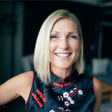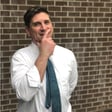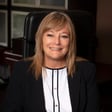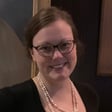
Ep. 40: Biochemistry, Nutrition, Physical Movement & Emotions
Many people are stuck in believing that their emotions, habits and biology are happening TO them.
In this episode we will explore ideas for what you CAN do to feel better physically and emotionally. You will learn:
- Ideas for how to improve your eating habits so you can influence your biochemistry and emotions in a positive direction.
- How exercise can be your best ally in feeling better.
- Suggestions for making it easy to develop healthier habits.
The ideas shared in this podcast are not medical advice. Please check with your medical doctor so you can make decisions that are right for you.
As a certified holistic and gut health practitioner, Rochelle Christiane believes that we all should feel good in mind, body, and soul.
Listen to Rochelle’s Emotional Mastery podcast here: https://www.rochellechristiane.net/podcast-episodes.
You can connect with Rochelle here: https://www.rochellechristiane.net
Join us for the next episode of The Hypnosis Show Podcast, where we will explore the map of how hypnosis can help you go from a place of fear and low self-worth to a position of confidence and possibility.















